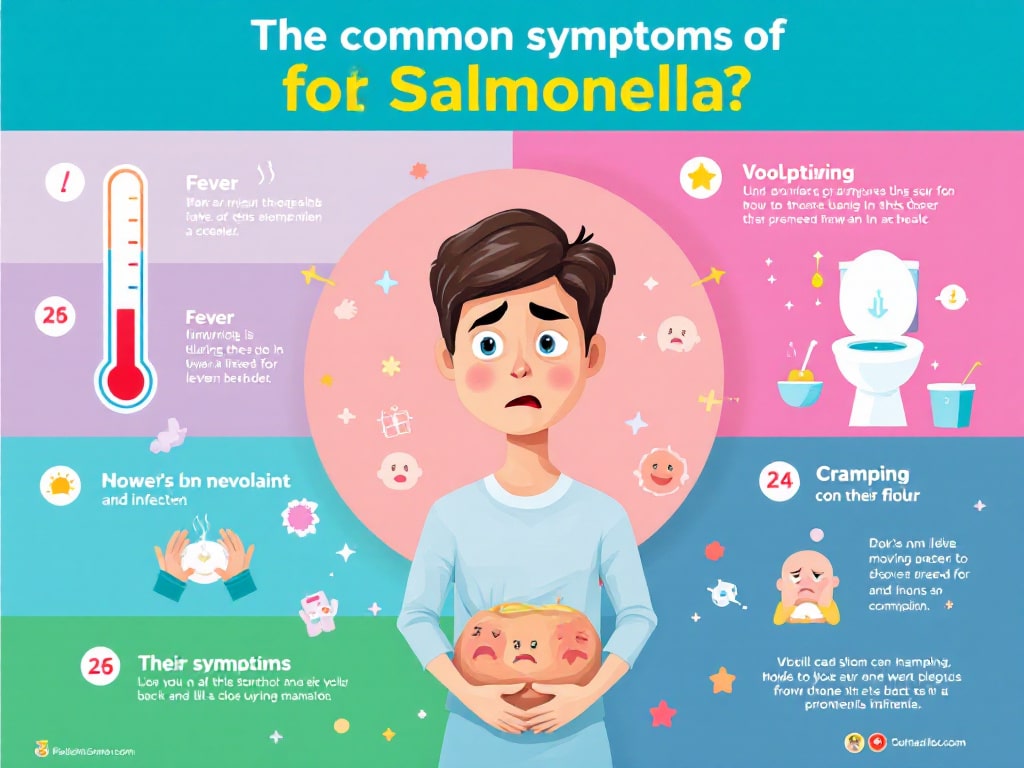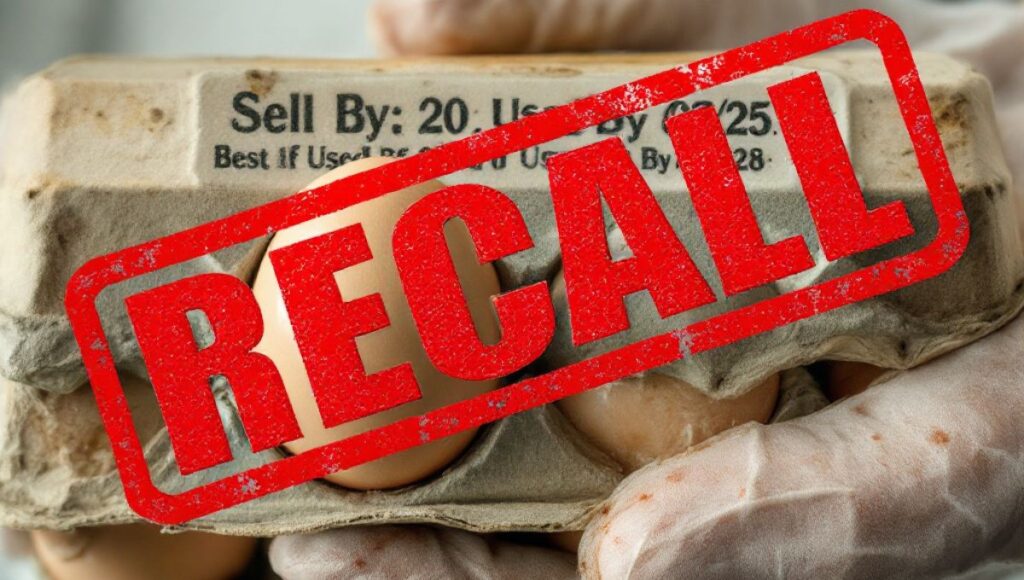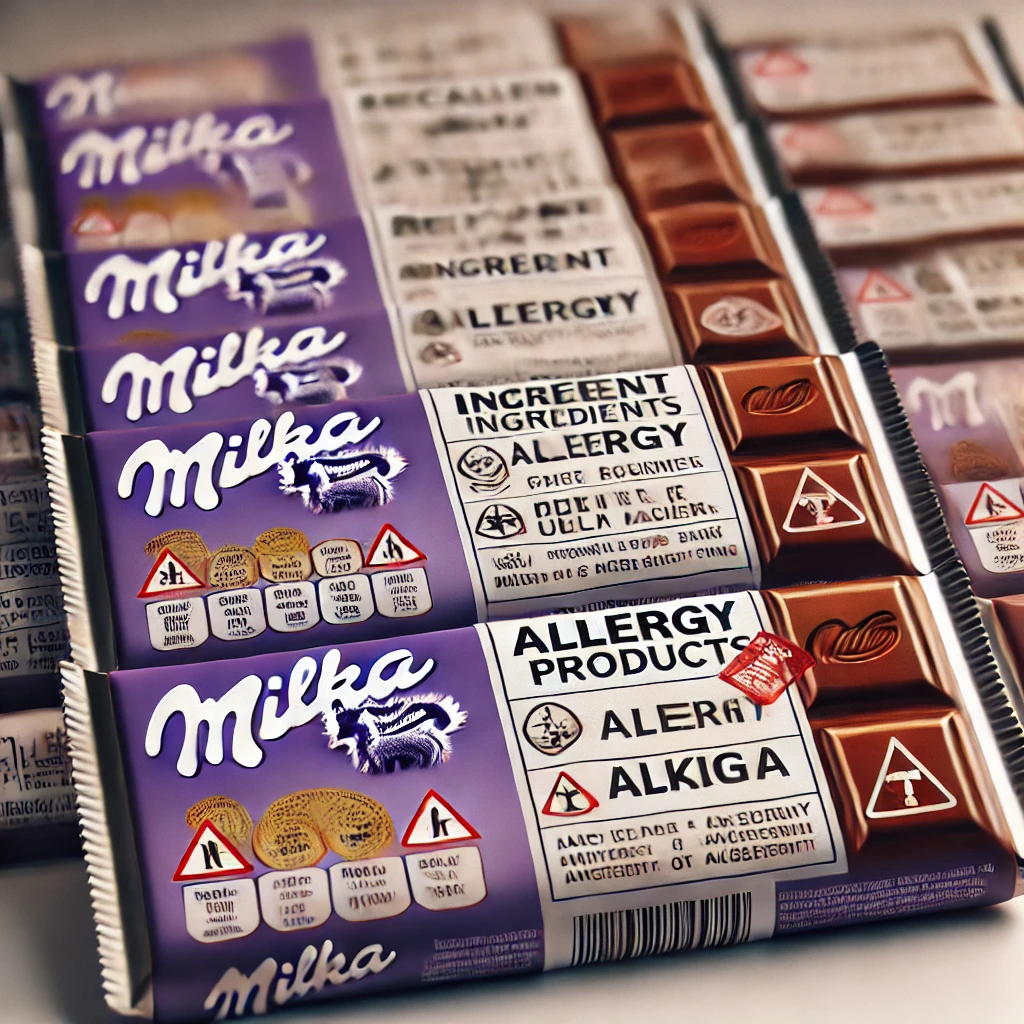Egg recall in Canada : In a concerning development, the Canadian Food Inspection Agency (CFIA) has announced a recall of multiple egg brands due to potential salmonella contamination. This recall impacts British Columbia, Ontario, Manitoba, and possibly other provinces and territories. The CFIA urges all Canadians to act swiftly, as consuming contaminated eggs poses serious health risks, particularly to vulnerable groups.
Brands and Products Affected
The recall includes well-known egg brands such as Compliments, Foremost, Golden Valley, IGA, and Western Family. These products have expiry dates of February 16, February 22, and March 1, 2025. Consumers are advised to check their egg cartons carefully for these dates and return or dispose of any affected products immediately.

The Risks of Salmonella Contamination
One kind of bacteria that can result in foodborne sickness is salmonella. Unlike spoiled food, contaminated eggs may look and smell completely normal, making the risk even more insidious. For healthy individuals, salmonella typically results in short-term symptoms such as:
- Fever
- Nausea
- Vomiting
- Abdominal cramps
- Diarrhea
However, the effects can be more severe and even fatal for young children, pregnant women, the elderly, and individuals with weakened immune systems. These groups are particularly vulnerable to complications that may arise from salmonella infection.

CFIA’s Swift Action
The recall was triggered by routine testing, which revealed the potential contamination. Though no illnesses have been reported yet, the CFIA has launched a thorough investigation to determine the extent of the contamination and ensure that affected products are removed from shelves across the country. The agency is also working closely with retailers to notify consumers and minimize public health risks.
Steps for Consumers
If you have purchased eggs recently, follow these steps to protect yourself and your family:
- Check Your Cartons: Look for the brand names and expiry dates mentioned in the recall notice.
- Dispose of Contaminated Products: Do not consume, use, or serve eggs from the affected batches. Return them to the store where you bought them, or throw them away right away.
- Monitor Your Health: If you suspect you’ve consumed contaminated eggs and experience symptoms such as fever, nausea, or diarrhea, seek medical attention promptly.
- Contact Retailers for Clarifications: If unsure about the safety of your eggs, consult the retailer for more information or check the CFIA website.
Salmonella in Canada: A Recurring Issue
This is not the first time Canada has faced a food recall due to salmonella concerns. In the past, similar issues have been linked to fruits, frozen vegetables, and even pet food. On average, salmonella infections affect approximately 88,000 Canadians each year, underscoring the importance of food safety practices.

Preventing Salmonella Contamination at Home
While the current recall highlights the risks associated with certain egg products, consumers can take proactive measures to reduce the likelihood of salmonella exposure in general:
- Cook Thoroughly: Always cook eggs until both the yolk and white are firm. Avoid consuming raw or undercooked eggs.
- Prevent Cross-Contamination: Keep raw eggs and other foods on different cutting boards and utensils.Wash your hands, utensils, and surfaces thoroughly after handling raw eggs.
- Refrigerate Properly: Store eggs in the refrigerator at or below 4°C (40°F) to prevent bacterial growth.
- Be Cautious with High-Risk Foods: Homemade products like mayonnaise, salad dressings, or desserts containing raw eggs should be avoided unless pasteurized eggs are used.
Implications for Retailers and Food Industry
This recall serves as a stark reminder for food producers and retailers to maintain stringent quality control standards. Contaminations like these not only pose significant health risks but also erode consumer trust. The CFIA’s proactive approach highlights the importance of regular testing and swift action in mitigating the spread of foodborne illnesses.
Consumer Awareness: The First Line of Defense
Educating consumers about food safety is crucial. Here are some tips to stay informed and vigilant:
- Stay Updated: Follow official CFIA announcements and food recall notices regularly.
- Register for Alerts: Many food safety organizations offer email or text alerts for product recalls.
- Understand Symptoms: Being aware of salmonella symptoms can help you seek timely medical intervention if needed.
Conclusion: A Collective Responsibility
The recent egg recall underscores the importance of collective responsibility in ensuring food safety. While regulatory agencies like the CFIA play a critical role in identifying and addressing risks, consumers must remain vigilant and proactive. By following recall instructions, practicing safe food handling, and staying informed, we can minimize the impact of foodborne illnesses and protect public health.
For more information on the recall and updates on the investigation, visit the CFIA’s official website or contact your local retailer. We can all benefit from a safer food supply if we work together.

dunkin donuts shortage














